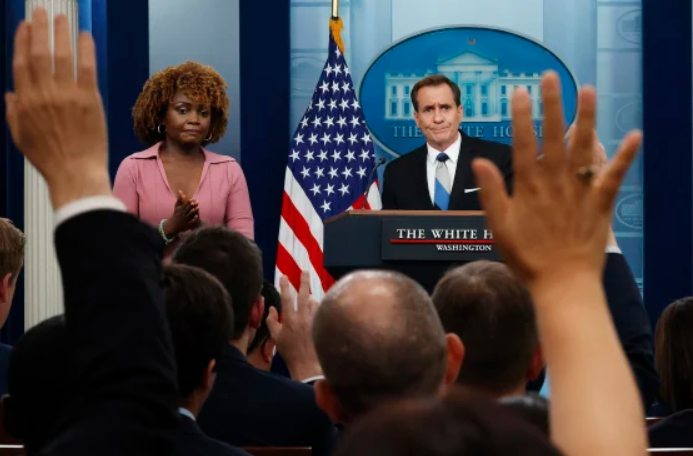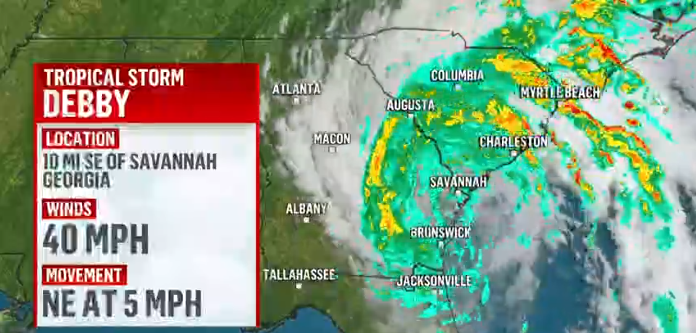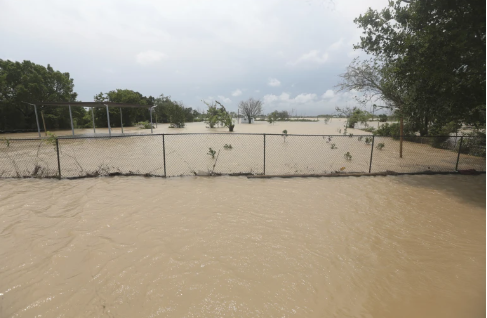Washington, D.C. — The White House has stated that Israel’s recent airstrike on Rafah and its ongoing ground assault in Gaza do not violate President Joe Biden’s ‘red line.’ The clarification comes amid escalating tensions in the Middle East, with rising concerns about the humanitarian impact of the conflict.
In a press briefing on Tuesday, White House Press Secretary Karine Jean-Pierre addressed the issue directly. “President Biden has been clear about his expectations for the conflict in Gaza,” Jean-Pierre said. “We are closely monitoring the situation, and while the recent actions by Israel in Rafah and the ground operations are concerning, they do not cross the ‘red line’ established by the President.”
The ‘red line’ referred to by President Biden involves specific conditions under which the United States would consider Israel’s actions as unacceptable, potentially leading to a reevaluation of U.S. support. These conditions are primarily centered on the protection of civilian lives and the avoidance of widespread humanitarian crises.
Background of the Conflict
The latest escalation began earlier this month following a series of rocket attacks by Hamas from Gaza into southern Israel and subsequent retaliatory airstrikes by the Israeli Defense Forces (IDF). The situation has rapidly deteriorated, with numerous casualties reported on both sides and significant damage to infrastructure.
Rafah, a key city in the southern Gaza Strip near the Egyptian border, has been a focal point of the conflict. The Israeli airstrike targeted what the IDF described as a major tunnel network used by Hamas for smuggling weapons and militants. However, reports from the ground indicate significant civilian casualties and extensive destruction of homes and public facilities.
International Response
The international community has reacted with alarm to the developments. The United Nations and various humanitarian organizations have called for immediate ceasefires and access to aid for the affected populations. Egypt has been particularly vocal, given Rafah’s proximity to its border and the influx of refugees attempting to cross into Egyptian territory.
European Union foreign policy chief Josep Borrell expressed deep concern over the escalation. “The cycle of violence must end,” Borrell said in a statement. “Both sides need to return to dialogue, and all actions that endanger civilian lives must cease immediately.”
U.S. Position and Implications
The United States has historically been a staunch ally of Israel, providing substantial military and economic aid. President Biden, while reiterating support for Israel’s right to self-defense, has also emphasized the need for restraint and the protection of civilian lives.
Jean-Pierre emphasized that the U.S. is engaging in “intensive diplomatic efforts” to de-escalate the situation. “We are in constant communication with Israeli and Palestinian leaders, as well as our partners in the region, to find a path forward that ensures security and stability for all,” she noted.
Humanitarian Concerns
Humanitarian organizations have warned of a looming crisis in Gaza, where the population of over two million people is already facing severe hardships due to the blockade and previous conflicts. The recent escalation has exacerbated shortages of food, water, medical supplies, and electricity.
Doctors Without Borders (Médecins Sans Frontières) reported that hospitals in Gaza are overwhelmed with casualties and struggling to provide adequate care. “The situation is dire,” said Dr. Mahmoud Abu Sada, a surgeon with the organization. “We need immediate international intervention to prevent a complete collapse of the healthcare system here.”
Future Steps
As the conflict continues, the focus remains on diplomatic efforts to achieve a ceasefire and prevent further loss of life. The U.S. has reiterated its commitment to working with international partners to support humanitarian relief and find a sustainable resolution to the conflict.
In Congress, the situation has prompted a range of reactions, with some lawmakers calling for a more robust response to protect civilian lives, while others emphasize the need to support Israel’s security measures against Hamas.
For now, the White House maintains that Israel’s actions, while closely scrutinized, do not breach the established ‘red line.’ The administration’s primary goal remains de-escalation and the protection of innocent lives on both sides of the conflict.



